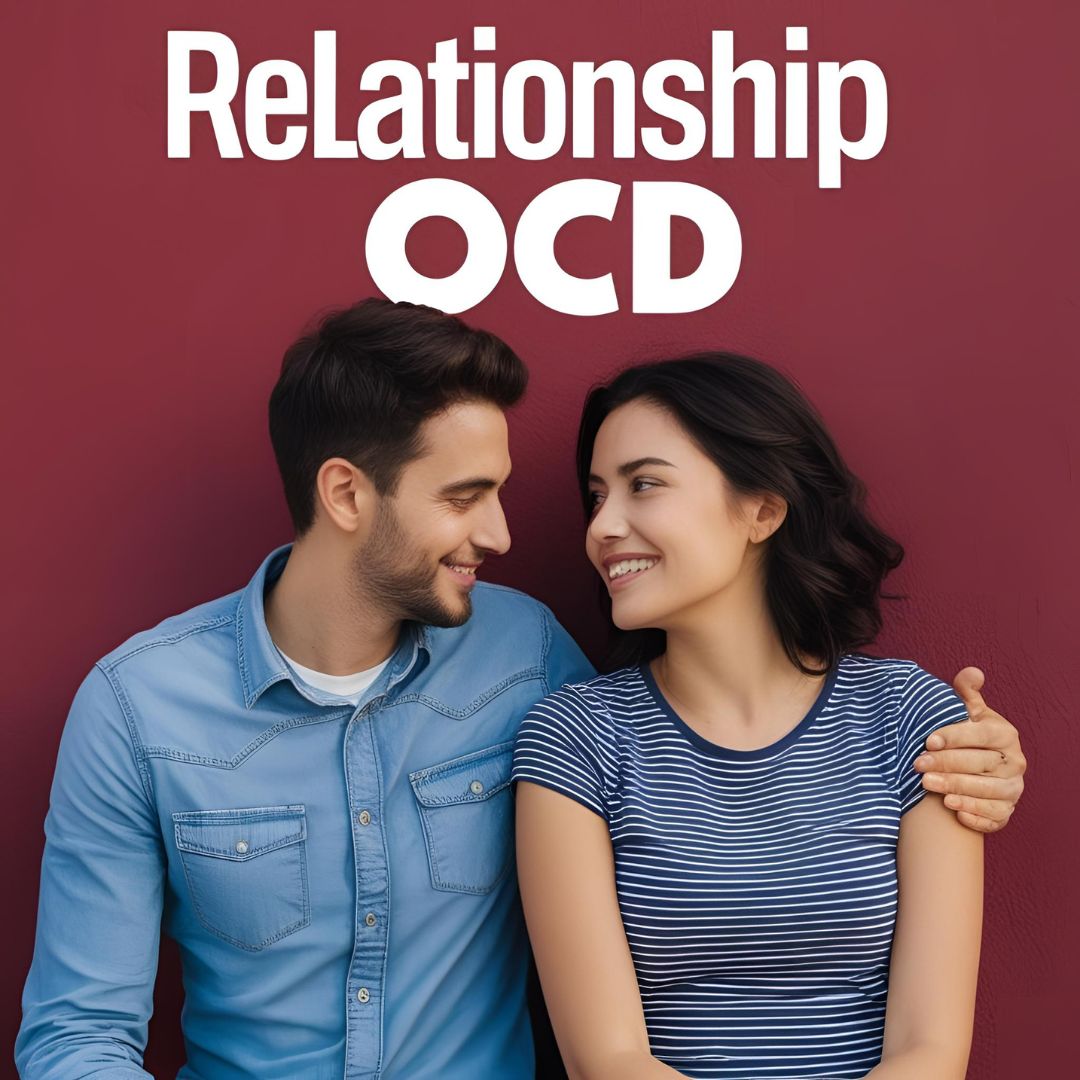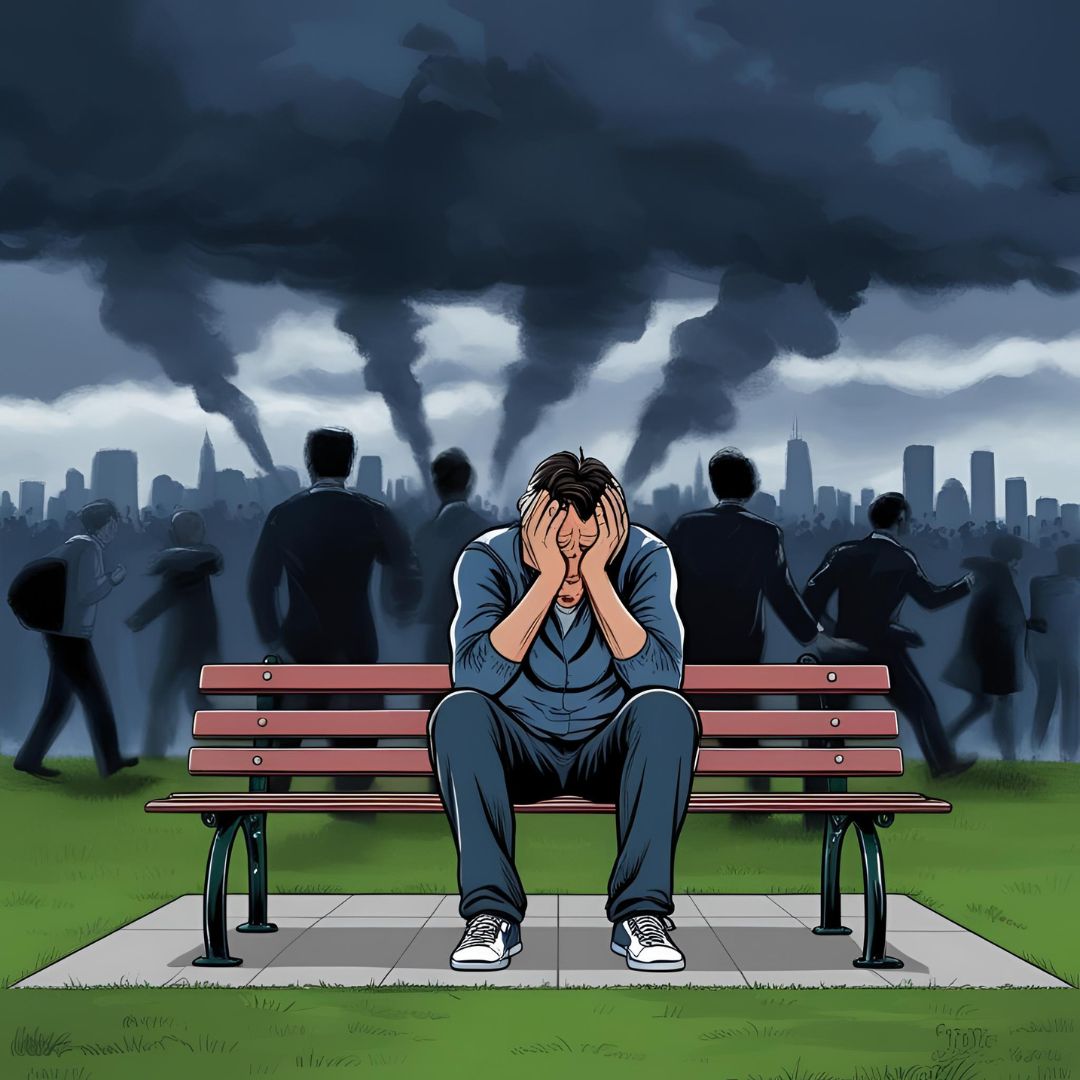Induja holds a Master’s degree in Clinical Psychology and brings a strong academic foundation to her work as a mental health content writer. With deep expertise in psychological concepts and evidence-based practices, she creates thoughtful, accurate, and empathetic content aimed at promoting mental well-being
02 Aug 25 10:30 am
Demystifying OCD - Symptoms, Causes & Online Therapy Options in India
Many people casually say they’re “OCD” when they like things neat or organized—but Obsessive-Compulsive Disorder is far more than a preference for order. It’s a real, often misunderstood mental health condition that can disrupt every part of a person’s life. In this blog, we break down what OCD actually is, explore its symptoms and causes, and explain how evidence-based therapy—especially online OCD therapy in India—can provide relief and recovery.

Demystifying OCD: Symptoms, Causes & Online Therapy Options in India
Meta Description:
Understand what obsessive-compulsive disorder (OCD) is, how it affects daily life, and how effective online OCD therapy and virtual counselling in India can support recovery.
Demystifying OCD: What It Is and How It Affects Lives
We often hear people say, “I’m so OCD about this!” when they like things neat or symmetrical. But Obsessive-Compulsive Disorder (OCD) is far more complex and debilitating than a preference for order. It is a chronic mental health condition that can severely impact daily functioning, relationships, and emotional well-being.
At LifeHetu, we believe it’s time to demystify OCD and spread awareness about what it truly is, and how OCD therapy online in India can change lives.
What is OCD? A Clinical Overview
Obsessive-Compulsive Disorder (OCD) is a psychiatric condition characterized by obsessions (unwanted, intrusive thoughts, urges, or images) and compulsions (repetitive behaviors or mental acts performed to reduce anxiety triggered by the obsessions).
According to the DSM-5 (Diagnostic and Statistical Manual of Mental Disorders), OCD is diagnosed when:
- The obsessions and compulsions are time-consuming (taking more than an hour per day).
- They cause significant distress or impair social, occupational, or other areas of functioning.
A person with OCD doesn’t enjoy performing compulsions; they feel trapped in an exhausting cycle of fear and temporary relief.
Common Types of Obsessions and Compulsions
OCD doesn’t look the same in everyone. Here are some common themes:
Obsessions:
- Fear of contamination or germs
- Fear of harming self or others
- Unwanted sexual, religious, or violent thoughts
- Need for symmetry or exactness
- Fear of losing control
Compulsions:
- Excessive hand-washing or cleaning
- Checking doors, stoves, or appliances repeatedly
- Mental rituals like counting or praying
- Repeating tasks a certain number of times
- Arranging things “just right”
How OCD Affects Daily Life
People with OCD may:
- Struggle to complete daily tasks due to rituals
- Feel ashamed or hide their symptoms
- Avoid people, places, or situations that trigger obsessions
- Experience depression or anxiety alongside OCD
- Feel misunderstood by loved ones who think they can “just stop”
A study by Springer found that OCD significantly lowers quality of life, particularly in areas of emotional well-being and social functioning. Moreover, OCD is often misdiagnosed or misunderstood, especially in countries like India, where awareness is still growing.
What Causes OCD?
OCD is a biopsychosocial disorder, meaning it arises from a combination of:
- Biological factors: Abnormalities in brain circuits involving the orbitofrontal cortex, anterior cingulate cortex, and striatum.
- Genetic factors: Twin and family studies show a heritability estimate of 45–65% (Nestadt et al., 2000).
- Psychological factors: Cognitive distortions, perfectionism, and heightened responsibility beliefs.
- Environmental triggers: Trauma, abuse, chronic stress, or infections like PANDAS (in children).
Diagnosis and OCD Treatment in India
Proper diagnosis requires a trained psychologist or psychiatrist. Unfortunately, many people in India still approach OCD symptoms as religious guilt, superstition, or bad habits, delaying intervention.
Treatment Options:
- Cognitive-Behavioral Therapy (CBT)
The gold standard. A form called Exposure and Response Prevention (ERP) is especially effective.
- Medication
SSRIs (Selective Serotonin Reuptake Inhibitors) like fluoxetine or sertraline are often prescribed.
- Online OCD Therapy in India
Platforms like LifeHetu provide access to trained therapists from the comfort of home, removing geographic and social barriers to care.

Does Online OCD Therapy Work?
Absolutely. A study by Andersson et al. (2012) in The Lancet found that internet-based CBT was as effective as in-person therapy for OCD. Clients showed reduced symptoms and improved functioning after just 12–16 sessions.
Online therapy provides:
- Convenience and privacy
- Access to experts across India
- Affordability compared to in-person therapy
- Structured ERP sessions and progress tracking
With increasing demand for counselling for OCD in India, LifeHetu bridges the treatment gap for underserved communities and busy professionals alike.
How LifeHetu Can Help
At LifeHetu, our licensed therapists are trained in:
- OCD-specific CBT and ERP
- Trauma-informed therapy
- Mindfulness-based approaches
- Cultural sensitivity and family counselling
We offer:
- One-on-one sessions
- Family counselling to educate loved ones
- Regular assessments to track progress
- Affordable therapy packages
Your mental health matters. You’re not alone—and you’re not your thoughts.
5 Practical Tips for Managing OCD Symptoms
While therapy is essential, you can also:
- Name the OCD: Recognize that the thoughts are OCD, not facts.
- Delay the ritual: Even by 10 seconds—it helps weaken the compulsion.
- Keep a journal: Record triggers, thoughts, and responses.
- Limit reassurance-seeking: It reinforces the OCD cycle.
- Practice self-compassion: OCD isn’t your fault.
Final Thoughts
OCD is not a quirk; it’s a serious but treatable mental health condition. Left unaddressed, it can rob people of time, joy, and peace. But with evidence-based treatment and compassionate care, recovery is possible.
At LifeHetu, we’re on a mission to make OCD therapy online in India accessible, empathetic, and effective. If you or a loved one is struggling, don’t wait. Reach out today and take the first step toward freedom from OCD.
FAQs
1. Is OCD just about being clean or organized?
No. OCD involves intrusive thoughts and compulsive behaviors—cleanliness is only one of many possible themes.
2. Can OCD go away on its own?
Unlikely. OCD tends to persist without treatment. However, therapy, especially CBT with ERP, can significantly reduce symptoms.
3. What is ERP, and how does it help OCD?
Exposure and Response Prevention (ERP) gradually exposes a person to their fears while preventing compulsions. It helps retrain the brain to tolerate uncertainty.
4. Is online OCD therapy as effective as in-person counselling?
Yes. Research shows online CBT is just as effective, especially when delivered by trained professionals, like those at LifeHetu.
5. How do I start counselling for OCD in India through LifeHetu?
Visit LifeHetu’s website, book a free consultation, and get matched with a licensed OCD specialist. We offer flexible plans and affordable pricing.
References
- Subramaniam, M., Soh, P., Vaingankar, J.A. et al. Quality of Life in Obsessive-Compulsive Disorder: Impact of the Disorder and Treatment. CNS Drugs 27, 367–383 (2013). https://doi.org/10.1007/s40263-013-0056-z
- Nestadt, G., Samuels, J., Riddle, M., Bienvenu, O. J., Liang, K. Y., Labuda, M., Walkup, J., Grados, M., & Hoehn Saric, R. (2000). A family study of obsessive compulsive disorder. Archives of General Psychiatry, 57(4), 358–363. https://doi.org/10.1001/archpsyc.57.4.358
- Andersson, E., Enander, J., Andrén, P., Hedman, E., Ljótsson, B., Hursti, T., Bergström, J., Kaldo, V., Lindefors, N., Andersson, G., & Rück, C. (2012). Internet based cognitive behaviour therapy for obsessive–compulsive disorder: A randomized controlled trial. Psychological Medicine, 42(10), 2193–2203. https://doi.org/10.1017/S0033291712000244
Related Reads. Similar Blogs to Check Out.


